
Advocates of gay rights celebrated after the Obama administration in late February said that it would no longer support the Defense of Marriage Act, a federal law that bans the recognition of same-sex marriage. The Defense of Marriage Act, or DOMA, signed into law by President Clinton in 1996, defines marriage as a legal union between one man and one woman.
The Obama administration, however, believes DOMA is unconstitutional.
President Barack Obama has concluded that the administration cannot defend the federal law that defines marriage as only between a man and a woman. He noted that the congressional debate during passage of the Defense of Marriage Act “contains numerous expressions reflecting moral disapproval of gays and lesbians and their intimate and family relationships – precisely the kind of stereotype-based thinking and animus the (Constitution’s) Equal Protection Clause is designed to guard against.” (link)
Although I take issue with the state having a role in defining what is and isn’t a legitimate relationship in general (and one’s romantic relationship defining whether or not they get access to certain benefits and privileges), I applaud the administration taking this strong stance against homophobic bigotry. So, I was disappointed (though not terribly surprised) to hear that the World Sikh Council, a “representative and elected body of Sikh Gurdwaras and institutions in the US,” has been lobbying the Obama administration to uphold DOMA and went so far as to co-sign a letter of protest to President Obama denouncing his decision to reverse DOMA. The letter states:
Guestblog by Fakir
I’ve been complaining for several weeks regarding the cricket craze and how educated, conscious south asians should be taking this moment of international spotlight on their ancestral or native countries to highlight their higher expectations for their countries much like what occurred around the world and in Beijing during China Olympics 2008 and educate their peers.
It especially angers me when I see Sikhs rooting for either Pakistan or India, when I see Muslims rooting for India (and Pakistan), etc etc, because these are oppressive machines not harmless patriotic identities. India v. Pakistan is going to happen today in Mohali, Punjab, India. Here is something else that happened in Mohali, Punjab, India just yesterday:
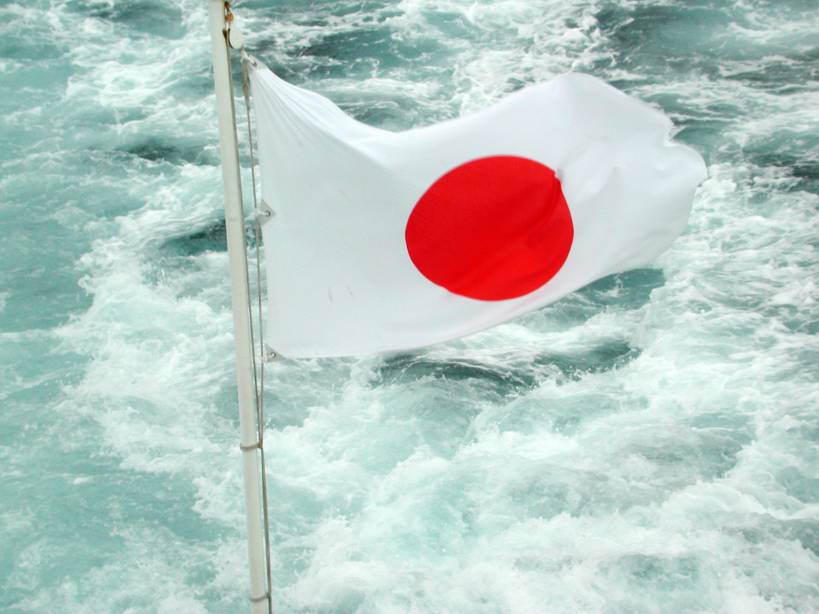 The aftermath of last Friday’s earthquake and tsunami in Japan is nothing short of horrific. I’m sure most of you have seen footage of the devastation on the news and on YouTube. My mind is boggled, my heart is aching, and I am all in all extremely overwhelmed by what is happening.
The aftermath of last Friday’s earthquake and tsunami in Japan is nothing short of horrific. I’m sure most of you have seen footage of the devastation on the news and on YouTube. My mind is boggled, my heart is aching, and I am all in all extremely overwhelmed by what is happening.
While I haven’t heard about any specific Sikh responses or relief efforts yet, United Sikhs, which sent a team to Haiti after last year’s huge earthquake, has a Japan earthquake/tsunami page up on their website. If you know of any efforts happening, please post them in the comments section.
While we keep the people of Japan in our thoughts and prayers, there are many ways we can be taking action. Below are a few simple things you can do to provide support. This is not intended to be a comprehensive list, so please add your own suggestions.
Guest blogged by santokh
A couple days ago I was reading some news articles on Hondh Chillar and Pataudi. Some of these articles include photographs from the two big events that took place at Hondh Chillar–clean up of the destroyed gurdwara building and Akhand Paath that took place thereafter in that building. I was talking to a couple friends about what all of this means for us as Sikhs, as youth with a vested interested in all things Punjab but separated from it by distance, and as a generation that, despite a fascination and infatuation with Punjab and Sikhi, seems disconnected to the memory of 1984 in many ways.
I was born a year after Operation Bluestar, no one from my family or relatives were directly affected by the genocide, my grandparents didn’t live close to New Delhi, Amritsar, or any of the other affected areas–Hondh Chillar and Pataudi, for example. As I was talking with my friends, I realized our awareness of Bluestar comes from websites, media, press releases by advocacy groups, a few books and essays, and the occasional speech at gurdwara or elsewhere almost as an annual ritual in June and November. It’s almost a kind of dynamic I can chart out–come the first week of June and November, emotions run high and my inbox is filled with invites to a number of vigils and memorials.
If I view the memory of Bluestar from the perspective of a generation before mine, everything changes. Many of my friends’ parents and grandparents were directly affected in 1984 as victims and/or witnesses. They have a direct connection to and memory of Bluestar. They know what media channels did and did not report, each of them is a walking memorial in a sense.
By now you’ve probably heard about Wisconsin governor Scott Walker’s attack on working class people and labor unions in Wisconsin. This week, Walker’s bill, which undermines public sector workers’ right to collectively bargain and slashes their benefits, among other things, passed through the state Senate, without a single Democratic Senator present for the vote, and the Assembly, in the face of three weeks of massive protests, the largest demonstrations in Wisconsin since the Vietnam War.
The Washington Post reports:
Wisconsin Gov. Scott Walker won his drive to strip the state’s government workers of nearly all of their collective-bargaining rights Thursday, after a three-week standoff that brought tens of thousands of protesters to the Capitol.
The new legislation represents a major setback for organized labor, but the political battle over public employees and their rights to bargain is likely to continue – not only in Madison.
The state Assembly passed Walker’s proposal a day after Republican senators outmaneuvered the 14 Democratic senators who had fled Wisconsin to deny a quorum needed for passing a budget measure. By stripping the bill of its spending language, they were able to pass it with only Republicans present.

Guest blogged by Preserve Architectural Heritage
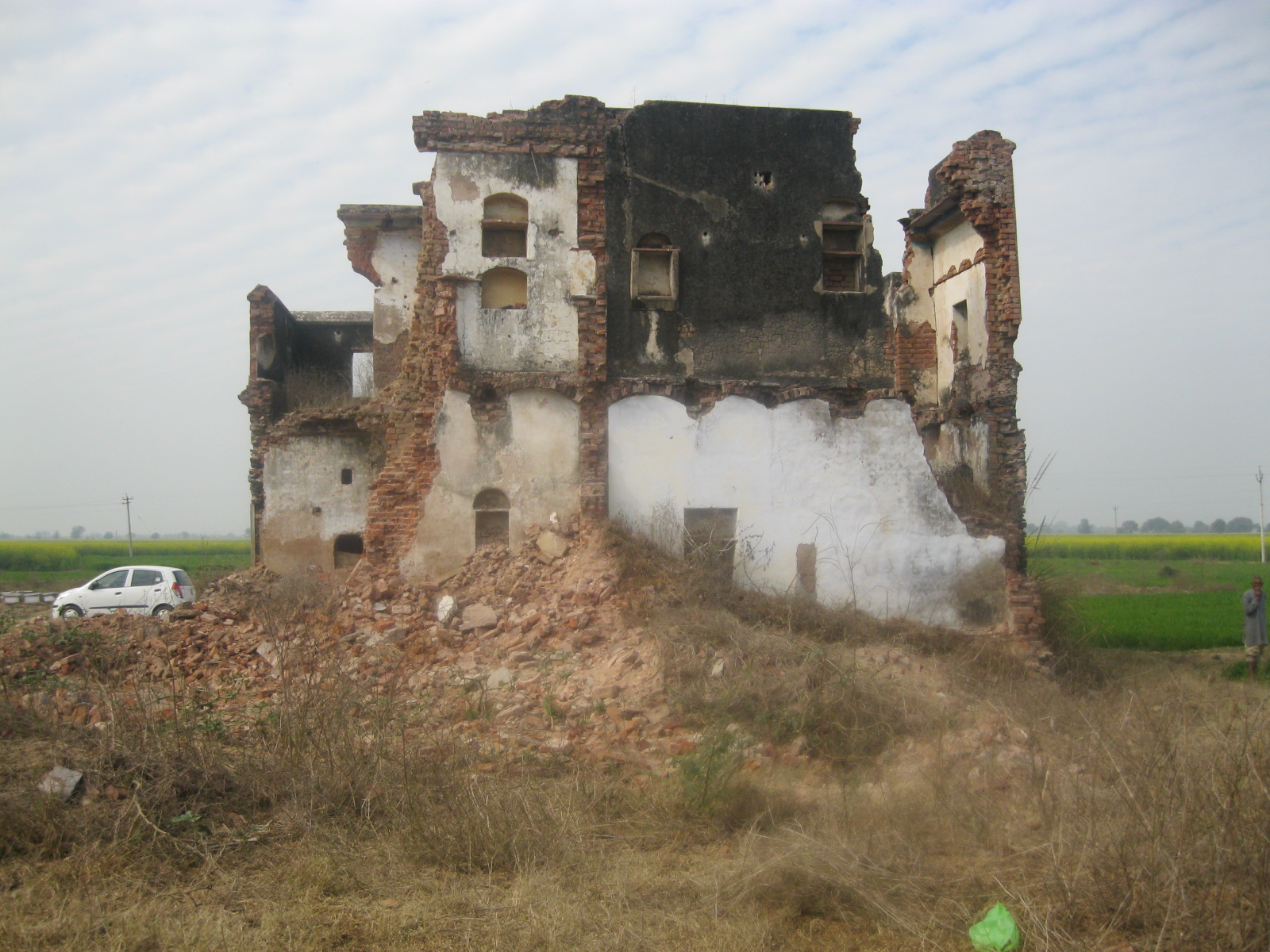 What: discovery of two sites linked to 1984: (1) Hondh Chillar, discovered January 2011. (2) Pataudi, discovered Februrary 2011. Both are in Haryana. Excerpts from Press Releases from Sikhs for Justice reveal that 32 men, women, and children were brutally tortured and killed in Hondh Chillar and 17 in Pataudi.
What: discovery of two sites linked to 1984: (1) Hondh Chillar, discovered January 2011. (2) Pataudi, discovered Februrary 2011. Both are in Haryana. Excerpts from Press Releases from Sikhs for Justice reveal that 32 men, women, and children were brutally tortured and killed in Hondh Chillar and 17 in Pataudi.
Why is this discovery important: So far all the investigation into the violence of 1984 has been done via interviews, eyewitness accounts, judicial commissions, and lawsuits. For the first time, we have living evidence of the genocide: the buildings speak for themselves. Though there are thousands of names on the ever-growing list of those killed in 1984, many of us have very little connection to those names since we don’t personally know the families. Even if some of us know or are related to survivors of the violence, it’s difficult and painful to have those individuals recollect and narrate their memories and experience.
Those of us with no familial connection to Operation Bluestar, those of us who were too young to remember, or were not born when this genocide tookplace now have a physical, tangible, alive, and direct relationship to this significant period of Sikh history through these sites. Since memory of any tragic event is intrinsically linked to physical location[s], it is absolutely crucial that we realize the value of Hondh Chillar and Pataudi as sites that provide us with a direct link to the memory of 1984. They are living sites, open for everyone to access and connect with. They are silent victims, that, just like the human victims of 1984, represent a crucial moment from the recent Sikh past.
The Sacramento Bee is reporting that two elderly Sikh men were shot while going on an afternoon walk in their suburban neighborhood on Friday. One of the men, 67-year-old Surinder Singh died from the attack on Friday, and 78-year-old Gurmej Atwal is in critical condition, suffering from two gunshot wounds in his chest. The Bee article states:
Relatives and friends in the tightknit Sikh community to which the two men belong were not as hesitant to call the shooting a hate crime.
Singh and Atwal, like many Sikh men, had thick beards and wore turbans – traditions that have made Sikhs the target of bigotry and violent attacks since the Sept. 11, 2001, terrorist attacks.
“The turban is a big problem for us,” said Gurjatinder Singh Randhawa, chief editor of the Sikh newspaper Punjab Mail USA. “We look the same as Afghan Taliban – but we are not Taliban.”
Randhawa recalled the beating of a Sikh cab driver four months ago in West Sacramento.
The driver told authorities that two passengers had uttered anti-Islamic slurs as they attacked him and then beat a female passenger who tried to stop them. Police have since arrested two men on charges of felony assault with a deadly weapon and commission of a hate crime in connection with the attack.
The massive pro-democracy uprisings in North Africa and the Middle East have gained tremendous momentum since the successful ouster of Egyptian president Hosni Mubarak two weeks ago. My thoughts and prayers are with the people of Libya this week, as their calls for the end of Moammar Gaddafi’s 42-year reign have been met with brutal repression. Gaddafi’s forces (including mercenary soldiers) have killed an estimated 640 to 1,000 protesters so far in just one week. The world is watching as the people of Libya sacrifice their lives for freedom and self-determination. May Waheguru bless them in their righteous struggle against tyranny.
Check out the below report from ABC News, but note that the message at the end about US-Libya relations is highly misleading. Though the US government has a complicated history with Gaddafi, he has been a strategic ally of the US in the region for over a decade. Until Obama’s statement on Libya just yesterday (after almost a week of brutal repression), the US has turned a blind eye to any human rights concerns in Libya. While his statement strongly condemned Gaddafi’s use of violence against the protesters, Obama stopped short of calling on Gaddafi to step down.

Today marks the 82nd birthday of Reverend Dr. Martin Luther King, Jr. Most of us learn about Dr. King’s influential role in the Black Civil Rights Movement in the United States, and have heard his “I have a dream” speech. But less do we hear about his opposition to the Vietnam War and his revolutionary calls for an end to U.S. militarism, calling his government “the greatest purveyor of violence in the world today.” As a man who was deeply driven by spiritual motives who used religious institutions to organize millions, Dr. King is a constant inspiration to me, and I hope to other Sikhs.
Check out the below video to hear his powerful and righteous “Beyond Vietnam” speech from April 4, 1967, exactly one year before he was murdered.
I am convinced that if we are to get on the right side of the world revolution, we as a nation must undergo a radical revolution of values. We must rapidly begin…the shift from a thing-oriented society to a person-oriented society. When machines and computers, profit motives and property rights, are considered more important than people, the giant triplets of racism, extreme materialism, and militarism are incapable of being conquered.
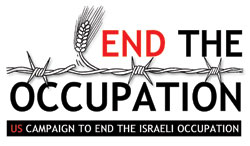 The Chair of the US House of Representatives Foreign Relations Committee, Rep. Howard Berman, is trying to push a resolution through Congress today “condemning unilateral declarations of a Palestinian state.”
The Chair of the US House of Representatives Foreign Relations Committee, Rep. Howard Berman, is trying to push a resolution through Congress today “condemning unilateral declarations of a Palestinian state.”
The United Nations has long recognized the sovereignty of the Palestinian people in the Occupied Palestinian Territory, including East Jerusalem as a matter of international law. Since 1975 the UN has recommended that the Palestinian people be able “to exercise their inalienable rights to self-determination, national independence and sovereignty; and to return to their homes and property.”
There is growing consensus around the rest of the world in support of Palestinian sovereignty and statehood, yet two countries stand in the way: Israel and its fiscal sponsor, the United States.
I just received notice from the US Campaign to End the Occupation about this horrifying resolution that will be voted on today.
Though Sikhs have settled all around the world, roughly 20 million Sikhs still reside in Punjab. There, and elsewhere, Sikhs are facing serious problems including, but not limited to: farmer suicide, female infanticide, drugs and alcohol abuse, domestic violence, economic disasters, disease, poverty, illiteracy, and much more. [Lahir Press Release]
Many of my most recent posts have been about upcoming events happening in the Sikh Community. I think this is a positive sign – that rather than idly discussing and debating issues that inflict our panth, we are actually doing something about it! I would like to highlight two upcoming events occurring in North America. These platforms will bring together talented youth to raise awareness and by doing so, will aim to address important issues within our community. Please support these endeavors so that we can continue to move our panth in the right direction.
Lahir: Save Punjab. Save Ourselves | New Jersey | November 20th | 6pm
Lahir: Move the Movement 2010 is a night of spoken word, poetry, music, and the arts. Artists will include G.N.E., Hoodini, Mandeep Sethi, Gunjiv “Baagi” Singh, MC G-Singh and Humble the Poet. The event will kickoff the movement to respect and protect Punjab by donating all profits to the Baba Nanak Education Society (BNES), an organization which provides humanitarian assistance in rural Punjab to next of kin of suicide victims. These are families with small children left completely destitute by the death of bread-winners and have been neglected by the government. A donation of approximately $350 can help support one family for a year. For more information, visit the facebook page.
Today we remember human rights activist, Jaswant Singh Khalra. Jaswant Singh Khalra discovered cremation records that proved Indian security forces illegally killed thousands of Sikhs in the 1980s and 1990s. Khalra connected the police to the disappearances of over 2,000 Sikhs in Amritsar district, located in the northwestern Indian state of Punjab. The police allege they lawfully killed the Sikhs in “encounters”, or in an exchange of gunfire. Khalra’s investigations, however, demonstrated that these Sikhs had been abducted by the police, killed in custody, and then secretly cremated as “unidentified/unclaimed” bodies at various municipal cremation grounds. The municipal cremation ground records recorded the date the bodies were cremated, the identity of the police stations and officials who deposited the bodies for cremation, and, in many cases, the identity of the victims, despite being labeled as “unidentified”. Khalra estimated that over 10 times as many Sikhs were killed throughout the entire state in this manner.
On the morning of September 6, 1995, witnesses saw uniformed and armed Indian police personnel abduct Khalra from outside his home, who had previously been warned by the police to discontinue his efforts or he too would be disappeared. Police tortured Khalra for weeks before killing him. Five police officers were eventually sentenced to life in prison for his abduction and murder, but the chief architects of systematic killings, including Punjab Police Chief KPS Gill, remain free. Khalra’s widow, Paramjit Kaur, who has been pursuing justice for her murdered husband, remarks: “We continue to seek the prosecution of the murders in Court but a communal judiciary only harasses us. It is unlikely that I will see justice served in my lifetime.” For more information, go to Ensaaf or Khalra.org
The video below is one of Khalra’s final speeches – it’s an incredibly inspiring video which should be watched by all.
Guest Blogged by Amritpan

Earlier this week I received an email letter from Kashmir. This was not the first such letter from Kashmir, nor I fear, will it be the last. I’ve read this letter once, twice, again and again and still cannot begin to explain the helplessness, anger, and despair that I feel each time. Helplessness for the lives of my people lost. Anger for the status quo of violence and periods of strained silence that soon erupt into violence and for this brutal cycle. And despair for seemingly no end in sight, the lack of a process that could bring peace to my homeland.
Below I share this letter with you. Some of it was also published here.
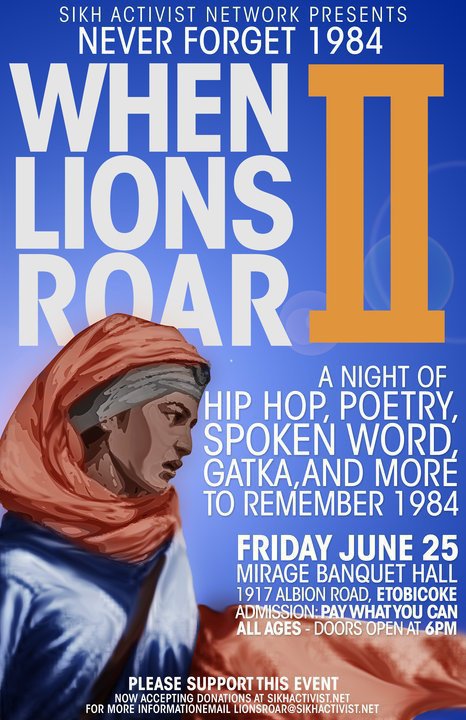 Last year, Maple Leaf Sikh highlighted a revolutionary event which occurred in Toronto and brought together young Sikhs to pay homage to 1984. The event, hosted by the Sikh Activist Network, returns this year and brings together artists such as Hoodini, Mandeep Sethi, Selena Dhillon and Yudh Gatka Akhara and more. For those of you who are dealing with post-Sikh-conference-blues – When Lions Roar II promises to be yet another excellent event bringing together Sikh youth in an impactful way.
Last year, Maple Leaf Sikh highlighted a revolutionary event which occurred in Toronto and brought together young Sikhs to pay homage to 1984. The event, hosted by the Sikh Activist Network, returns this year and brings together artists such as Hoodini, Mandeep Sethi, Selena Dhillon and Yudh Gatka Akhara and more. For those of you who are dealing with post-Sikh-conference-blues – When Lions Roar II promises to be yet another excellent event bringing together Sikh youth in an impactful way.
A Night of Hip Hop, Poetry, Spoken Word, Gatka and More…
To Remember 1984
Friday June 25
Mirage Banquet Hall
Admission: Pay What You Can
All Ages – Doors Open at 6pm
The year 1984 saw unimaginable calamities in India. This is the story of the two most well-known.
One was caused by a callous corporation and a complicit government. When thousands of people were exposed to horrendous toxins and poisonous gases in Bhopal, Union Carbide first denied it completely, only to later deny culpability. The Government of India was only to happy to allow destruction to its own citizenry in the name of protecting foreign investments and corporate welfare. Over 4,000 people lost their lives due to the complicit negligence and countless others were permanently incapacitated.
Reported today, an Indian court has found some of the corporate executives guilty. While Union Carbide had been purchased by Dow Chemical in the interim, various activists and community members continued to fight for the guilty to be brought to justice. 8 top of executives have now been found guilty. Details are still sketchy, but one hopes their corporate malfeasance receives the full brunt for its depravity, although activists see too little too late and a light punishment meted to these corporate terrorists.
Meanwhile, another event that saw the death of thousands of lives of lives in India occurred one month earlier. However, this was not confined to a Bhopal backwater, but rather was on the streets of India’s capital – in full view of the press, police, army, and politicians. When the four groups, all co-conspirators, were not actively leading the charge of the pograms, then they remained silent in their complicity. The latest news remains the same – despite valiant attempts by victims’ lawyer, HS Phoolka, the court continues to dither and protect the known culprits. When 4,000 Sikhs are murdered in the streets, led by government officials and their sponsored goons, they receive no solace. It is a lesson learned by the Sikhs in 1984 and the Muslims of Gujarat in 2002.
So while we give a hug to those victims in Bhopal that may now see someone brought to justice (as small as it may be), even if it does not bring back their family members, we can only provide a shoulder of support and solidarity to those that lost their lives due to the pograms of 1984. A callous government may provide something (even after 26 years) when the guilty are corporate, but expect nothing when the murderer is itself.
 Last month 17 Indian nationals were sentenced to die for killing a Pakistani man. 16 of the 17 men come from a Sikh background.
Last month 17 Indian nationals were sentenced to die for killing a Pakistani man. 16 of the 17 men come from a Sikh background.
The case has attracted some attention in the Indian press, but has now found place on the BBC and other sources due to Amnesty International, a premier human rights group, calling attention to the torture of the defendants.
Amnesty says the men were taken to the scene of the killing in the emirate of Sharjah and forced to re-enact it. It says they were made to beat a police officer posing as the dead man a month after their arrest – an act filmed and presented as genuine evidence.
Citing evidence produced by Indian rights group Lawyers For Human Rights International (LFHRI), Amnesty said that the 17 men were beaten with clubs, given electric shocks, deprived of sleep and forced to stand on one leg for prolonged periods.“This is a mockery of justice. These 17 men have been tortured, forced to confess and sentenced to death based on a faked video,” Amnesty’s deputy director for the Middle East and North Africa, Hassiba Hadj Sharaoui said.“Amnesty International is calling on the UAE authorities to investigate the allegations of torture and abuse and to ensure the 17 men receive a fair trial on appeal,” the group said in a statement. [link]
Guest blogged by Brooklynwala
A few days ago, a friend sent me this powerful open letter she wrote in order to spark critical thinking and dialogue on the pitfalls of calling the police and relying on the criminal (in)justice system to deal with issues in our neighborhoods and communities. We live in New York City, which has a police force widely known for its excessive use of force and violence, especially against people of color. Sundari recently did a post on the NYPD shooting and killing of a Sikh man in NYC, Satnam Singh, just last week.
In a context in which police by and large cause more harm than get us closer to justice and where the prison system dehumanizes people instead of rehabilitating them, the author of this piece, along with a growing movement around the U.S., are challenging us to think of alternative ways of responding to harm. She states,
“Many of us don’t believe in calling the police. Right now, right here, even before we’ve sufficiently built all the alternative structures for responding to harm. Both in an attempt to create the world we want to live in, and/but also because the impact of prisons and policing is brutal, oppressive, racist, traumatic. We see almost no good coming of it, certainly no transformation, no making things better. We don’t trust police, we don’t think of them as the “good guys,” and we don’t think calling them is going to change anything.”
My friend’s compelling piece “Feeling for the edge of your imagination” got me thinking about what a Sikh approach to justice is. While there is clearly not a simple answer to this question, I tend to think a Gurmukh would place love, forgiveness, rehabilitation, accountability, and recognizing the Divine in all at the center, despite questionable or even horrific actions one has perpetrated. Think about Bhai Kanhaiya Ji’s seva for “enemy” soldiers in need, who saw the injured soldiers’ humanity before he sought vengeance for their attacks against the Sikhs.
Guest blogged by Harbakhsh Grewal
At the start of this year BBC 1, Britain’s premiere tv channel, highlighted the importance of 1984 to the Sikh psyche with a film documenting the personal journey of a British Sikh woman, journalist Sonia Deol. The reaction from many Sikhs has been hostile and vocal. Did the programme insult the faith, demonise its leaders and miss a massive opportunity to set the record straight as some have claimed? And even if it did, does the presenter deserve the vitriolic response resulting in her deleting her facebook page to avoid any more abuse?
Whatever the rights and wrongs of the programme, the response to it shows the level of concern still in the community to the tragic and horrific events of 1984. However some of the criticism has been purely personal and deeply unpleasant and does nothing to redress the balance or aid the causes that those who are angry care about.
To discuss the programme in any detail requires much deliberation. And that in a sense is why the programme should be applauded: the issues covered were of such enormity and complexity the programme makers should be congratulated for daring to cover them at all in the first place – and to try and do so within an hour slot is a task of great difficulty.
And the fact that many younger Sikhs, as well as the wider non-Sikh public more generally, have discovered a whole chapter of their own community’s history in some depth and breadth I think shows that the BBC has provided a much needed service.
Those who criticise on specific issues such as the portrayal of Bhindranwale have their own points to make. But they seem at times illogical.
Where do the elderly fit into India new modern image? Often in South Asian families, caring for the elderly is not a question-it will happen. In West we know of the many stories of how the elderly are mentally, physically, and 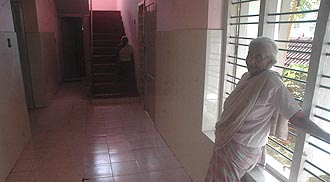 emotionally abused by their children. Often the elderly are forced into starting their life over again in a new country coupled with the strain of supporting themselves at an age when they can no longer work and are socially dependent on their children.
emotionally abused by their children. Often the elderly are forced into starting their life over again in a new country coupled with the strain of supporting themselves at an age when they can no longer work and are socially dependent on their children.
However, in India, we are told it’s not the case. Families care for their elderly-some are even forced to because all the property is in their elderly parents names. But New America Media reports that the number of elderly left to care for themselves in India is skyrocketing and the country has no infastructure to care for them. For example, with an aging population of 80 million, Indian old age homes do not accept patients with dementia. Dementia is a common problem that afflicts the elderly.
Update: The SWAT team provided an update on their progress. See end of post.
The Sikh Welfare Awareness Team is a new charitable organization in the UK focused on bringing awareness to drug and alcohol abuse in our community and reducing involvement in crime by providing youth with activities and organized events to participate in. The organization’s primary goal is “to establish relationships amongst the youth and… aim to bring together the local Sikh Community and focus on projects which benefit the youth of today.” I came across information about this organization after viewing a troubling YouTube video about homeless Sikhs (since the video below has been made private by the owner, log on and you can also watch the videos on Facebook). The Sikh Welfare Awareness Team (or S.W.A.T.) is currently working to bring awareness to the growing number of Sikhs, many who are recent immigrants from Punjab and are homeless living on the streets of Southall.





